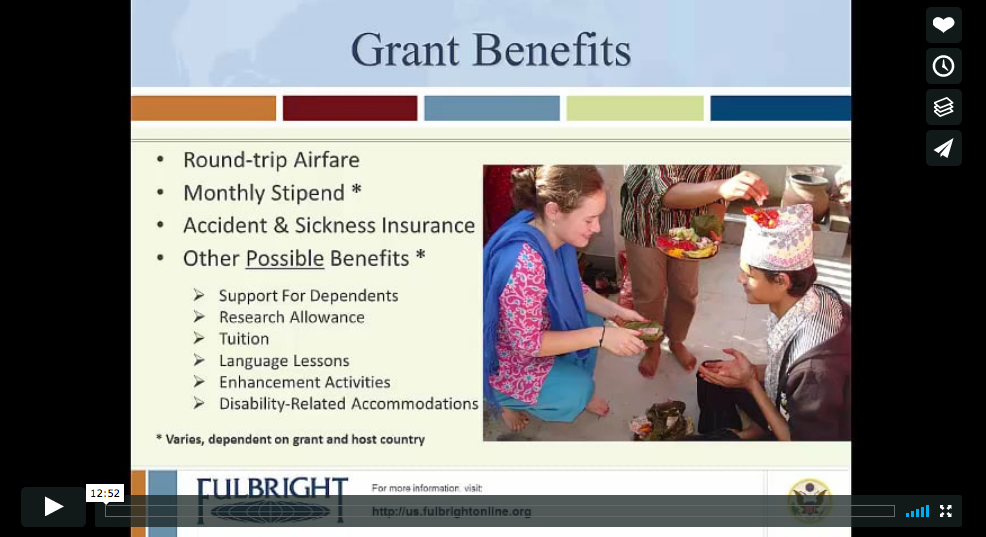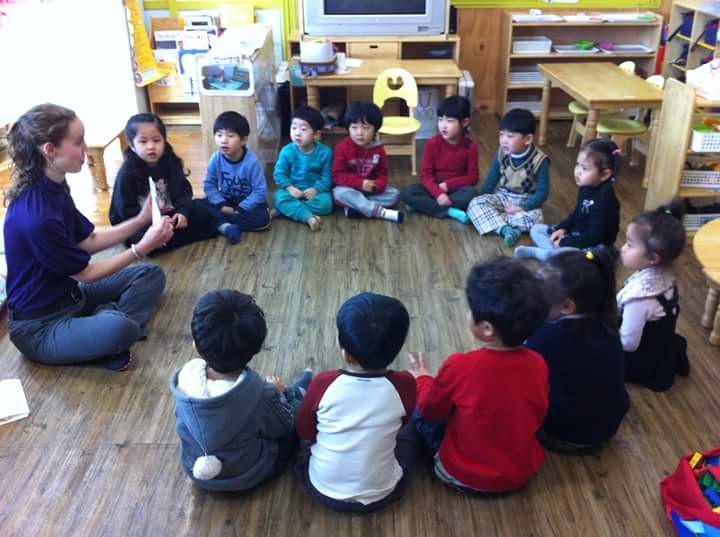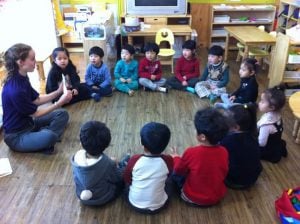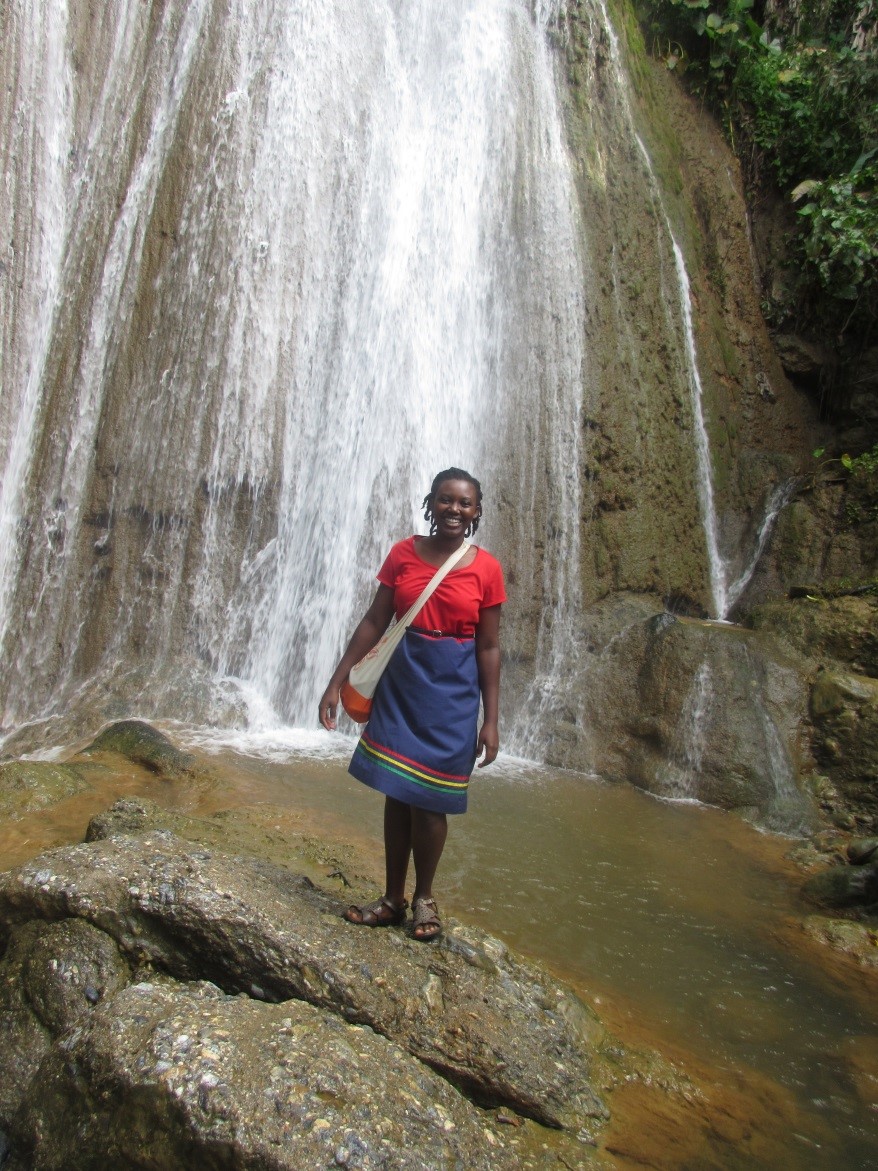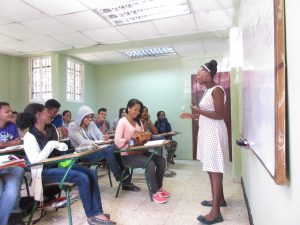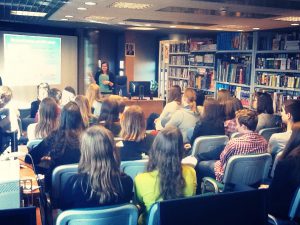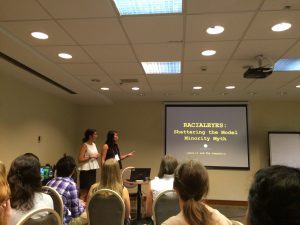
Mia Yamashiro (left), Laura Li (right), 2014-2015, Fulbright Teaching Assistants to Brazil, presenting at the Fulbright Mid-Year Seminar in São Paulo
When I decided to apply for a Fulbright U.S. Student grant, I chose Brazil, and in particular, Curitiba, because of its strong Asian-Brazilian community. I thought that my Japanese-Okinawan heritage and cultural background would be a way to connect with Curitibanos. Yet I quickly realized that instead of creating connections, it often made me feel isolated.
It was difficult adjusting to the racial climate of Brazil where, in stark contrast to the United States, people are not very sensitized to race issues. For example, people pulled their eyes at me as a way to tease me or establish familiarity with me, like, “You’re Japa,right?” (pulls eyes). People asked Laura, who is Chinese-American, if she was my sister. Men on the street cat called me, yelling “Japa!” and touched my hair.
So Laura and I decided to give voice to these racial issues by creating Racialeyes, a project dedicated to further understanding the Asian-Brazilian community in Curitiba, Paraná. Our project was born out of the desire to dispel harmful stereotypes and educate people about the diversity and richness of the Asian diaspora in Brazil. While eyes are often pulled back at us to mark us as “other,” this project seeks to re-appropriate our racialized eyes, diversify the dialogue about Asian-Brazilians, and make us question our instinct to mark different as “other.”
Continue Reading

